Top 10 Books Highlighting the Asian American Experience
Throughout the month of April, UIC guided students, faculty and staff on a path to understanding the diverse cultures and traditions of Asian Pacific Islander Desi Americans. UIC Business is contributing to those efforts by providing you with a comprehensive list of books that detail the Asian American experience as well.
Distinguished Asian American Business Leaders by Naomi Hirahara Heading link
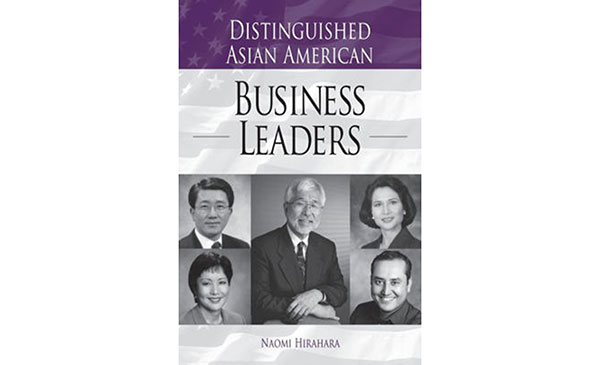
Although there are other reference books about Asian Americans, no other book focuses solely on business people. This collection of engagingly written biographies gives the details on the lives of 96 Asian men and women who have had successful business careers, giving information on their education, training, and career highlights and histories.
The book provides valuable information as well as inspiration to students, from high school through university. Each biography concludes with references for further reading, and an appendix lists the people profiled by field of business, from fashion to restaurant franchises, from high technology to the movie industry.
A New History of Asian America by Shelley Sang-Hee Lee Heading link
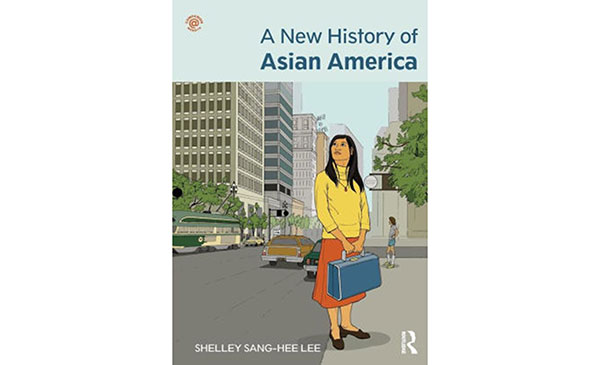
A New History of Asian America is a fresh and up-to-date history of Asians in the United States from the late eighteenth century to the present. Drawing on current scholarship, Shelley Lee brings forward the many strands of Asian American history, highlighting the distinctive nature of the Asian American experience while placing the narrative in the context of the major trajectories and turning points of U.S. history. Covering the history of Filipinos, Koreans, Asian Indians, and Southeast Indians as well as Chinese and Japanese, the book gives full attention to the diversity within Asian America.
The Making of Asian America by Erika Lee Heading link
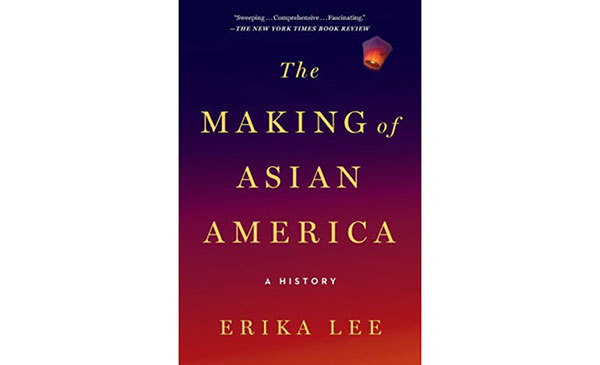
The Making of Asian America shows how generations of Asian immigrants and their American-born descendants have made and remade Asian American life, from sailors who came on the first trans-Pacific ships in the 1500 to the Japanese Americans incarcerated during World War II.
Over the past fifty years, a new Asian America has emerged out of community activism and the arrival of new immigrants and refugees. But as Lee shows, Asian Americans have continued to struggle as both “despised minorities” and “model minorities,” revealing all the ways that racism has persisted in their lives and in the life of the country.
Stuck by Margaret M. Chin Heading link
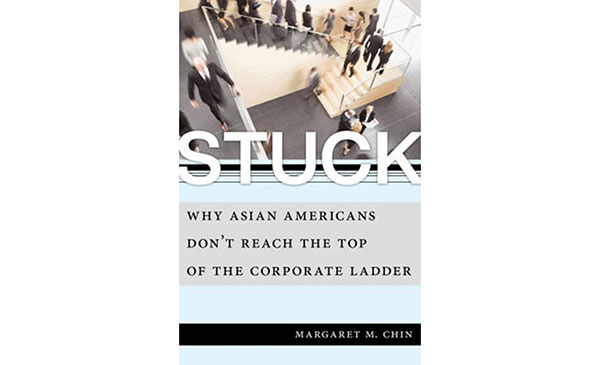
In Stuck, Chin shows that there is a “bamboo ceiling” in the workplace, describing a corporate world where racial and ethnic inequalities prevent upward mobility. Drawing on interviews with second-generation Asian Americans, she examines why they fail to advance as fast or as high as their colleagues, showing how they lose out on leadership positions, executive roles, and entry to the coveted boardroom suite over the course of their careers.
An unfair lack of trust from their coworkers, absence of role models, sponsors and mentors, and for women, sexual harassment and prejudice especially born at the intersection of race and gender are only a few of the factors that hold Asian American professionals back.
America Is in the Heart by Carlos Bulosan Heading link
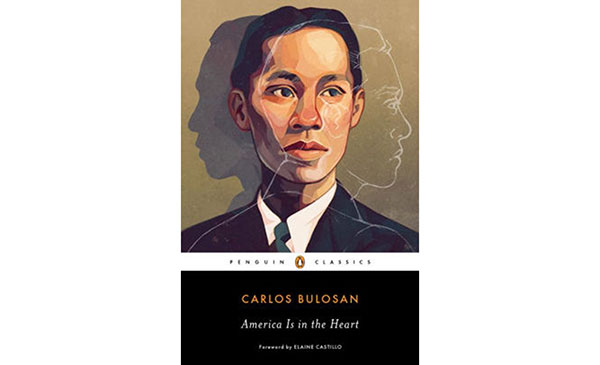
Poet, essayist, novelist, fiction writer and labor organizer, Carlos Bulosan (1911-1956) wrote one of the most influential working class literary classics about the U.S. pre-World War II, a period and setting similar to that of Steinbeck’s The Grapes of Wrath and Cannery Row.
Bulosan’s semi-autobiographical novel America is in the Heart begins with the narrator’s rural childhood in the Philippines and the struggles of land-poor peasant families affected by US imperialism after the Spanish American War of the late 1890s. Carlos’s experiences with other Filipino migrant laborers, who endured intense racial abuse in the fields, orchards, towns, cities and canneries of California and the Pacific Northwest in the 1930s, reexamine the ideals of the American dream.
Bulosan was one of the most important 20th century social critics with his deeply moving account of what it was like to be criminalized in the U.S. as a Filipino migrant drawn to the ideals of what America symbolized and committed to social justice for all marginalized groups.
Yellow Peril! An Archive of Anti-Asian Fear Edited by John Kuo Wei Tchen and Dylan Yeats Heading link
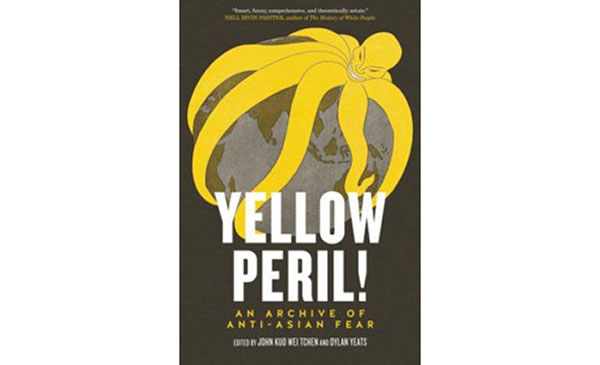
The “yellow peril” is one of the oldest and most pervasive racist ideas in Western culture—dating back to the birth of European colonialism during the Enlightenment. Yet while Fu Manchu looks almost quaint today, the prejudices that gave him life persist in modern culture. Yellow Peril! is the first comprehensive repository of anti-Asian images and writing, and it surveys the extent of this iniquitous form of paranoia.
Written by two dedicated scholars and replete with paintings, photographs, and images drawn from pulp novels, posters, comics, theatrical productions, movies, propagandistic and pseudo-scholarly literature, and a varied world of pop culture ephemera, this is both a unique and fascinating archive and a modern analysis of this crucial historical formation.
The Myth of the Model Minority: Asian Americans Facing Racism by Joe Feagin and Rosalind S. Chou Heading link
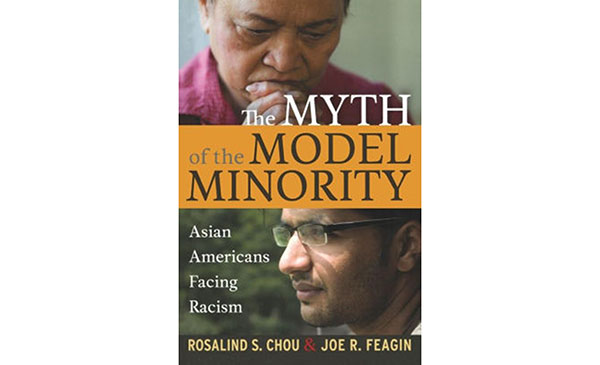
With their apparent success in schools and careers, Asian Americans have long been viewed by white Americans as the “model minority.” Yet few Americans realize the lives of many Asian Americans are constantly stressed by racism. This reality becomes clear from the voices of Asian Americans heard in this first in-depth book on the experiences of racism among Asian Americans from many different nations and social classes.
Chou and Feagin assess racial stereotyping and discrimination from dozens of interviews across the country with Asian Americans in a variety of settings, from elementary schools to colleges, workplaces, and other public arenas. They explore the widely varied ways of daily coping that Asian Americans employ-some choosing to conform and others actively resisting. This book dispels notions that Asian Americans are universally “favored” by whites and have an easy time adapting to life in American society. The authors conclude with policy measures that can improve the lives not only of Asian Americans but also of other Americans of color.
Native Speaker by Chang-rae Lee Heading link
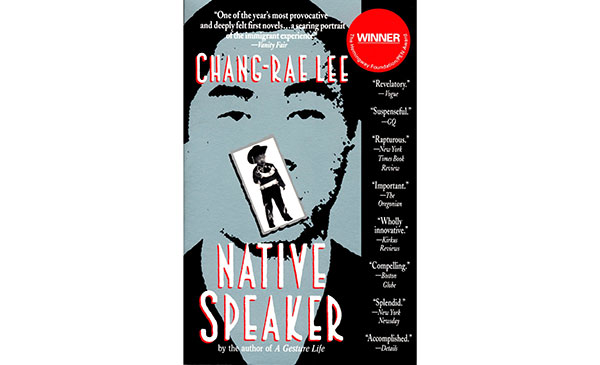
In Native Speaker, author Chang-rae Lee introduces readers to Henry Park. Park has spent his entire life trying to become a true American—a native speaker. But even as the essence of his adopted country continues to elude him, his Korean heritage seems to drift further and further away.
Park’s harsh Korean upbringing has taught him to hide his emotions, to remember everything he learns, and most of all to feel an overwhelming sense of alienation. In other words, it has shaped him as a natural spy.
Native Speaker is a story of cultural alienation. It is about fathers and sons, about the desire to connect with the world rather than stand apart from it, about loyalty and betrayal, about the alien in all of us and who we finally are.
The Woman Warrior by Maxine Hong Kingston Heading link
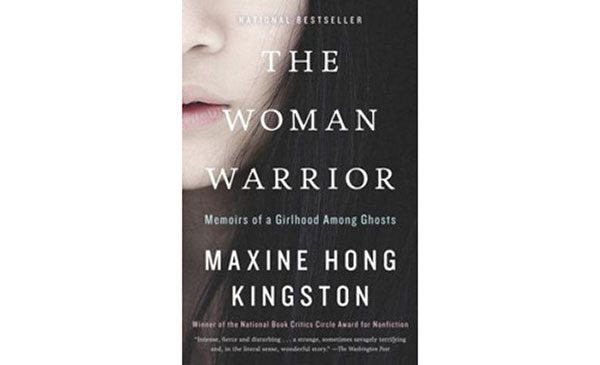
As a girl, Kingston lives in two confounding worlds: the California to which her parents have immigrated and the China of her mother’s “talk stories.” The fierce and wily women warriors of her mother’s tales clash jarringly with the harsh reality of female oppression out of which they come. Kingston’s sense of self emerges in the mystifying gaps in these stories, which she learns to fill with stories of her own. A warrior of words, she forges fractured myths and memories into an incandescent whole, achieving a new understanding of her family’s past and her own present.
All You Can Ever Know by Nicole Chung Heading link
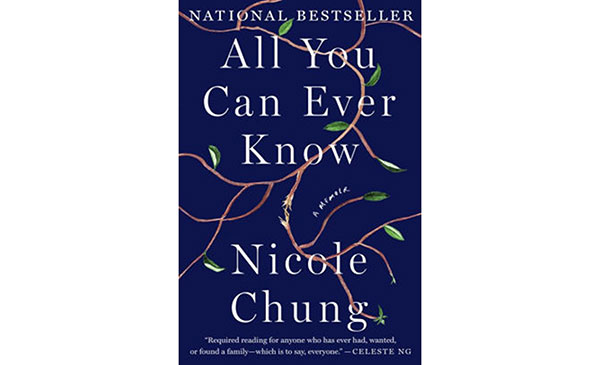
Nicole Chung was born severely premature, placed for adoption by her Korean parents, and raised by a white family in a sheltered Oregon town. From childhood, she heard the story of her adoption as a comforting, prepackaged myth. She believed that her biological parents had made the ultimate sacrifice in the hope of giving her a better life, that forever feeling slightly out of place was her fate as a transracial adoptee. But as Nicole grew up—facing prejudice her adoptive family couldn’t see, finding her identity as an Asian American and as a writer, becoming ever more curious about where she came from—she wondered if the story she’d been told was the whole truth.
With warmth, candor, and startling insight, Nicole Chung tells of her search for the people who gave her up, which coincided with the birth of her own child. All You Can Ever Know is a profound, moving chronicle of surprising connections and the repercussions of unearthing painful family secrets—vital reading for anyone who has ever struggled to figure out where they belong.